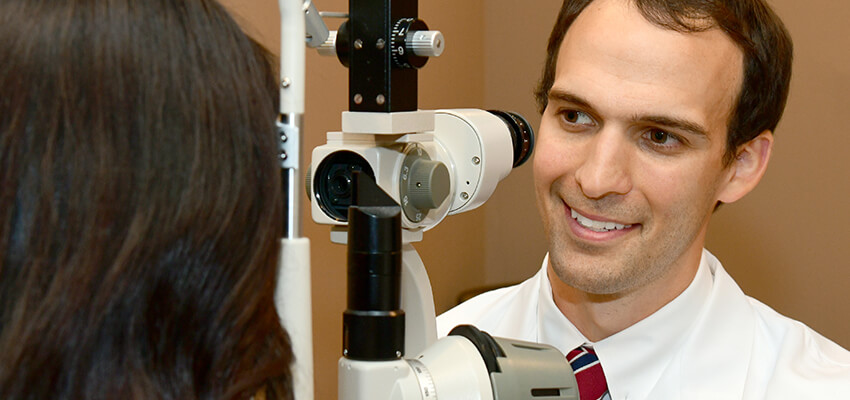
A Full Thickness Cornea Transplant, also called Penetrating Keratoplasty (PKP), is an involved procedure that replaces a damaged cornea that cannot be treated through other means with a cornea from a donor. Corneal transplants may be required because of injury, infection, or disease, including:
- Cornea scarring
- Corneal ulcers or thinning
- A bulging cornea (keratoconus)
- Clouding or swelling of the cornea (corneal edema)
- Inherited diseases, such as corneal dystrophies
The corneal donor tissue is obtained from an eye bank. Donated corneas come from individuals who have chosen to donate their corneas and have no history of diseases or factors that might affect the success of the transplant. Tissue is carefully screened and prepared before it is approved by the surgeon for use.
The Procedure
Penetrating keratoplasty is an outpatient procedure, performed in a sterile operating room by a specially trained ophthalmologist. It may be done under either local or general anesthesia, depending on the patient. The surgeon uses specialized tools to cut the donor cornea so it is the precise shape and size necessary for the transplant.
A similar tool is then used to remove the diseased cornea. The matching replacement cornea is positioned and sewn into place with very thin sutures (thinner than a human hair). The anesthesia prevents discomfort during the procedure.
When the sutures are complete, a protective shield will be placed over the eye. The patient can then go home after a brief waiting period. The physician will likely schedule a follow-up appointment for the next day, along with prescribing antibiotics and pain medication, should they be needed.
Complete recovery typically takes up to 1 year, with vision initially being blurry and improving over time. However, for those with severe vision loss, they may not see an immediate improvement in the vision. After the surgery, the patient may need eyeglasses or contact lenses to further correct vision.
As the eye heals, the patient may need to avoid strenuous activities that could injure the eye before it is back to full strength.
There is a small risk of rejection of the donor tissue that may occur, so your physician will monitor you on a regular basis. Transplant rejection may occur years after surgery, so regular eye examinations are critical to monitor continued eye health. Your surgeon will prescribe topical steroid drops that you may be required to use every day for the rest of your life to prevent rejection of the transplant.
Drs. Campbell, Cunningham, Taylor & Haun have cornea specialists and surgeons available in Knoxville, Sevierville, Maryville, Fountain City, Hardin Valley, Oak Ridge, and Farragut, and can implement the treatments necessary to address corneal health issues from minor to serious. Schedule an appointment today by calling (865) 584-0905.



 >
>
Get Social